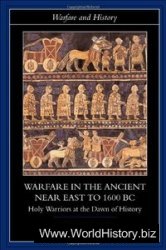Albert the Great was probably born around 1200 in Lauigen in Germany and died in 1280. He was canonized and declared a Doctor of the Church in 1931. During his long and eventful life he has often been burdened with institutional and religious duties linked to his role within the Dominican order (where he entered in 1223), alternating with periods of intellectual and academic achievements, on which we will focus here. He was educated in Padua, then taught as a lector in various places in Germany within the Dominican order. He studied theology in Paris from 1241 on and became Master in 1245, the year Thomas Aquinas became his student. He taught in Paris until 1248. He was then sent in Cologne as the regent of the Studium generate, which he run until 1254. Thomas Aquinas followed his master to Cologne where he served as magister studium until 1252; Ulrich of Strasbourg was also his student there. Albert was appointed prior provincial of Teutonia from 1254 to 1257. The same year he was asked by Pope Alexander IV to discuss the separation of the intellect (the famous ‘‘Agnani dispute’, which led to the De unitate intellectu and to the chapters of his Summa theologiae, directed against Averroes, but only after the crisis of the 1270s About monopsychist theses and Averroism generally). He returned to Cologne from 1257 to 1259. He became bishop of Ratisbon from 1260 to 1263, then traveled in Germany many years after a stay in Wfirzburg. He was in Strasbourg from 1267 to 1270. He was in Paris in 1277 in order to defend his student Thomas Aquinas. He died in 1280 in Cologne.
The chronology of his philosophical works remains uncertain especially for the commentaries on Aristotle, which were written between 1250 and 1270. The first work was the De natura honi (around 1223), then he wrote the commentary on the Sentences and the Summa de creaturis (around 1243 during his stay in Paris), the commentaries on Pseudo-Dionysus’ De divinis nominihus and De ecclesiastica hierarchia, the Super ethicam between 1248 and 1252 in Cologne. He composed the commentaries on the Posterior Analytics and the Politics during his bishopate (around 1262-1263), as well as his second commentary on the Ethics (Ethica) and the De unitate intellectus contra Averroem. The paraphrases on the Topica and the Sophistici elenchi were finished around 1269. The commentary on the Liher de causis was written between 1264 and 1267. A reconstitution of the order of the paraphrases on Aristotelian natural philosophy (which included some pseudepigraphs) has been proposed. We quote some major works (see Weisheipl 1980:565-577): Physica (1251), De caelo et mundo, De generatione and corruptione, Meteora, De minerahilihus, De anima, De intellectu, De vegetalibus (=Deplantis), and De animalibus (1258 for the first version). The logical commentaries that have not been already mentioned were probably written during the second part the 1250s, but there is no certitude. The Isagoge was for instance composed after 1251 (the commentary on the Physics) and before 1263-1264 (the Metaphysica). Most of Albert’s exegesis on ancient works is written in the style of the ‘‘avicennian’’ paraphrase, and not of the literal commentary, a choice in accordance with Albert’s philosophical style.
Albert’s work is generally acknowledged as a very important moment in the history of the transmission of ancient Greek and Arabic philosophy in the Middle Ages. He read and commentated on the vast collection of philosophical texts newly available, together with works the tradition had already transmitted: Pseudo-Dionysus, all the Aristotelian works (including all the books of logic, natural philosophy, the Ethics, the Politics, the Metaphysics, and the Liber de causis), Avicenna, Averroes, and Maimon-ides, as well as Porphyry, Boethius, Augustine, and Euclid, mentioning only some of the most famous authorities he used and collected in philosophy, science, and theology. He was accordingly called the Doctor Universalis. His encyclopedic approach led him to complete Aristotelian philosophy when some books were missing, as, for instance, for those treatises of the Parva naturalia that were known at that period, but not yet transmitted. His ambition was to bring a deep and complete understanding of Aristotelian philosophy to his contemporaries (who he called the ‘‘Latins’’) and to show that there was no contradiction between the philosopher as interpreted through a well-ordered peripatetism and Christian teaching. He has also been praised and systematically seen as being essentially the master of Thomas Aquinas. But his thoughts have been subjected to various readings, very often quite critical. He was criticized for a gratuitous accumulation and curiosity, without being able to elaborate a coherent theory of his own. This unworthy reading of Albert is being revised (see de Libera 2005:11 sq).
Albert’s reception in the Middle Ages and beyond is a complex matter. Many apocryphs have been attributed to him such as the Small and the Great Albert (a treatise on the virtues of minerals, plants, and animals), and the Women’s Secret, he long enjoyed a strong reputation as an expert in magic. His sharp distinction between the objects and goals of philosophy led by reason and of theology where revelation prevails (though it has to be constituted as a science) has been often viewed as an ambiguous defense of the autonomy philosophy, dangerously near to the Latin Averroists and the ‘‘two-fold theory of truth.’’
The very important number of manuscripts preserved speaks by itself for a great influence of Albert during the Middle Ages, but this impression is to be qualified: his writings have often been used as a mine of informations about ancient philosophers, new concepts, and interesting distinctions without his personal theory being adopted as such (see Ebbesen, ‘‘Albert (the Great?)’s companion to the Organon,’’ in Zimmerman and Villemain-Diem (1981), for this phenomenon in logic).
As A. de Libera has argued (de Libera 2005:40 sq.) Albert’s thought has led to different trends in medieval philosophy: the German Dominican school anchored in the Studium Generale of Cologne, which major figures are Ulrich of Strasbourg (dead before his master in 1277), Dietrich of Freiberg (d. 1318-1320), and Bertoold of Moosburg (d. 1361), even though Eckart can be seen as part of this school; Latin Averroism especially in Italy; and Albertism proper, a movement best illustrated by Heymeric de Campo’s (1395-1440) work, but spread all over Europe in the fifteenth century. Albertists adopted the Dominican’s realistic position on the problem of the universals against the Occamist nominalistic theses, and developed it as a philosophical path distinct from Thomas Aquinas’ realism.




 World History
World History









